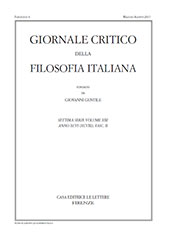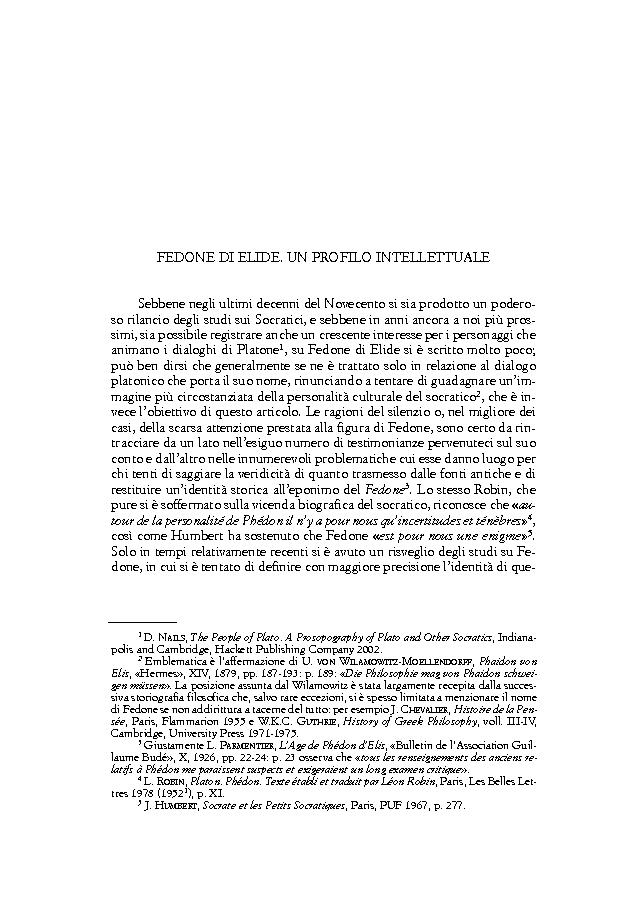Fedone di Elide : Un profilo intellettuale
260-271 p.
Fedone di Elide ci è noto come il narratore del dialogo platonico omonimo, ma scarse e, in alcuni casi, contraddittorie sono le informazioni riguardanti la sua vita e i suoi scritti. Attraverso il riesame delle controverse testimonianze pervenuteci sul suo conto e la discussione delle diverse ipotesi storiografiche si è tentato di restituire un'identità storica all'eponimo del Fedone. Anche lo Zopiro e il Simone, i soli dialoghi che Diogene Laerzio annovera tra gli scritti autentici di Fedone e che molto probabilmente riguardavano esclusivamente tà thika, meritano di essere conosciuti meglio. Sia pur dall'esiguo numero di frammenti e dalla sostanziale oscurità delle testimonianze, emerge il profilo di un Fedone dedito alla filosofia intesa come cura e purificazione dell'anima. Furono forse questi interessi, accompagnati da una profonda fiducia nelle capacità della ragione, che spinsero Platone a eleggere Fedone narratore del dialogo. [Testo dell'editore].
Phaedo of Elis is known as the narrator of the homonymous PlatoôÂÂÂs dialogues, but the information about his life and his works are poor and sometimes contradictory. An historical identity to the heponym of Phaedo has been tried to return, through the re-examination of the debatable evidences at our disposal on his person and the different historiographic hypothesis. Also Zopyrus and Simon, the only dialogues that Diogenes Laertius consider among the real works of Phaedo, and that very probably handle solely tà ôÂÂÂthica, deserve to be known better. Even if by the scanty numbers of fragments and by the substantial obscurity of the evidences, it emerges the profile of Phaedo dedicated to the philosophy meant as care and purification of the soul. Maybe these interests, accompanied by a deep trust on the faculties of the reason, drove Plato to elect Phaedo as narrator of the dialogue. [Publisher's text].
Fait partie de
Giornale critico della filosofia italiana : XCVI, 2, 2017-
Articles du même numéro (disponibles individuellement)
-
Informations
Code DOI : 10.1400/272932
ISSN: 2284-1474



